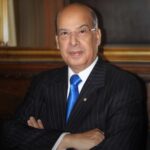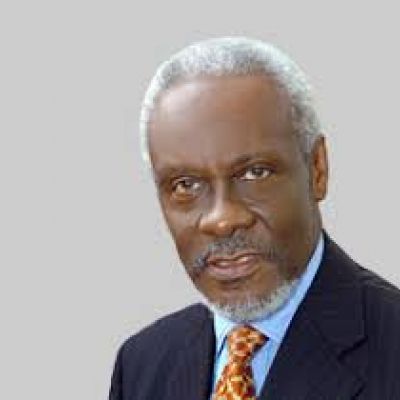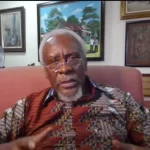FORMER Prime Minister PJ Patterson has scolded Jamaicans in positions of political leadership and authority for engaging in “distasteful” and “disgraceful” public discourse that “belittle us as a nation” and sets a poor example for our children.
Patterson, Jamaica’s sixth and longest-serving head of government, serving from 1992 to 2006, made the comments in a heartfelt message to the nation as it marks this year’s ‘Emancipendence Week’, a combination of the August 1 Emancipation Day and August 6 Independence Day celebrations.
The elder statesman’s message came after a slew of vulgar and disrespectful comments emanating from political platforms and on social media sites in recent weeks that have fuelled backlash and fierce exchanges among political rivals and so-called civil society groups.
Pointing to the second stanza of the national anthem that implores: “Teach us true respect for all”, Patterson said recently he has become increasingly disturbed by a severe decline in that exhortation.
“Utterances from some in the political sphere and positions of authority belittle us as a nation and also undermine respect for all. Public respect is rapidly descending to an all-time low. The language used routinely is distasteful, disgraceful, and comments are derogatory. The tone of their delivery is devoid of respect,” said Patterson who, in 1994, had launched a Values and Attitudes Programme aimed at addressing indiscipline, incivility and violence. However, the programme fizzled from a lack of societal buy-in and partisan politics.
He said that, increasingly, the public is made to endure intensely negative public discourse that abuses, demeans, and vilifies others.
“Instead of mutual respect, a small but vociferous number of our public speakers are consistently mean-spirited and vulgar. This appalling deterioration cannot be allowed to continue without our clear denunciation as ‘one people out of many’. We dare not remain silent as it cannot be condoned,” added Patterson.
“Without rebuke, we are failing to live up to our democratic ideals and undermining our country’s ability to achieve its full potential. Undoubtedly, our ancestors, on whose shoulders we stand, would be appalled at the ugly and debasing public discourse in recent times. We have let them down,” said the former prime minister.
Pointing out that open and public speech is fundamental to the democratic ideal, Patterson said that through public dialogue options are debated and alternative policy options for the public good are identified. Additionally, through public discourse the citizenry can challenge decision-makers, demand justification, and hold their leaders accountable.
He said that no person or office is exempt from criticism, and in doing so, there will inevitably be disagreements. However, civility and respect must be maintained.
“Crudity,” Patterson insisted, “reduces belief in institutional legitimacy, undermines respect for opposing views, and further polarises our citizens. That, if unchecked or halted, will result in intolerable levels of partisan division and yield dangerous social tension. The startling truth is that it repels and never attracts an increase of political support.”
Added Patterson: “It is not to our benefit as a nation that our citizenry should disengage from public discourse because of the fear of vulgar personal abuse, or reduce the available talent pool from which successive effective leadership will emerge.
“The despicable pattern of offensive utterances and vitriolic exchanges will deter rather than entice those idealistic members of the younger generation who aspire to engage in the political arena or render public service.
“In this age of advanced technology, comments made in physical spaces are instantly transmitted on social media platforms and spread worldwide.
“Our children are watching, hearing, and imitating, as boys and girls are wont to do. How can we impart appropriate values and attitudes to them when such poor examples are set by some in political discourse on matters of national importance? How can we teach them respect when individuals whom they should respect fail to show respect to one another?” the elder statesman argued.










